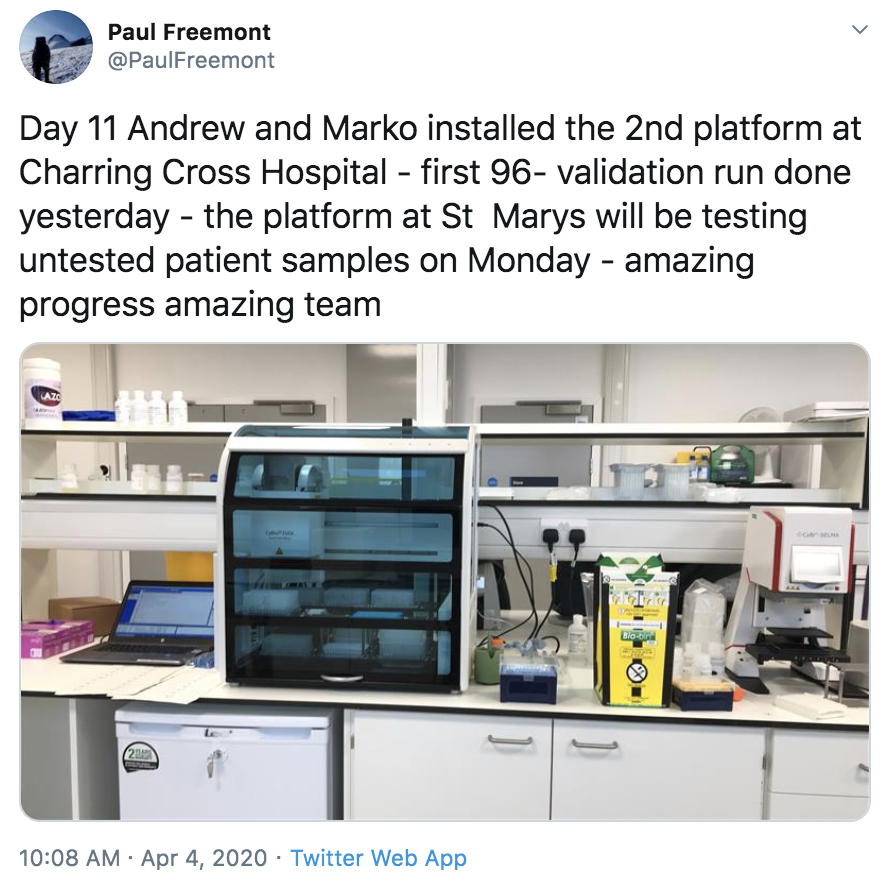Looking back to the start of the year, few of us would have predicted the extraordinary times we are currently living through. Even for scientists, who are acutely aware of the power wielded by the natural world, the transformation brought about by this invisible invader has been startling.
Unfortunately, the pandemic has also put on hold practical work into tackling one of the other great health challenges of our time - dementia. For many researchers, the middle of March required a rapid exit from the labs and months of hard work were inevitably and frustratingly lost. These worries are compounded by concern for the wellbeing of friends and family, many of whom are far away for our international staff. It has been an extremely difficult time for all but there is appetite from the community for progress to continue where possible.
Faced with a new virtual reality, some researchers are shifting their attention to the often-neglected tasks of sifting through literature, writing up manuscripts and, importantly, building future projects. Meetings continue (for better or worse!) on video conferencing platforms and many scheduled events and conferences have gone virtual rather than being abandoned altogether. With the administration and cost of hosting speakers often proving prohibitive, the lockdown has perhaps shown that virtual seminars and workshops can provide a viable alternative option for sharing science.
Since the outbreak took hold, it has been humbling to see the response from our community. Firstly, clinical colleagues returned to the front line in NHS hospitals, treating and caring for those most acutely affected. Many researchers have also been using their lab skills to help with testing efforts. The UK DRI centres have all answered appeals from health authorities, donating laboratory testing equipment (qPCR machines), reagents and much-needed PPE for healthcare professionals. Moving specialist equipment to the NHS immunology lab at Queen Square Hospital, Senior Postdoctoral Researcher Dr Amanda Heslegrave assisted with set up and validation of a test to measure the inflammatory response in Covid-19 patients. This can help us predict the disease course and whether an individual will require extra care going forward. Others are reviewing and summarising newly released Covid-19 literature to identify promising leads in treatment and management of the virus.

Prof Paul Freemont's repurposed robotic platform is now up and running in two London hospitals
In order to overcome the pandemic in the UK and begin a return to ‘normal’ life, experts point to widespread testing as a key requirement. If necessity is the mother of invention, nowhere else has this been exemplified more than in the work of Prof Paul Freemont and colleagues from the newest centre at UK DRI – Care Research & Technology. In just nine days, the team, working with NHS colleagues, repurposed high-throughput, robotic technology to determine whether individuals have the virus. The technology is usually used to test for infections in vulnerable people such as those living with dementia. There are now systems set up at two NHS hospitals, each capable of turning around 1000 samples in a 12-hour period. Over the coming weeks and months, it is hoped this scalable technology can contribute greatly to nationwide testing efforts. To assist with this, two projects managers have been seconded from other UK DRI centres, showing the benefits of the institute’s network.
Other initiatives at the Care Research & Technology centre have adapted to the situation, including a remote monitoring trial in participants’ homes that is now checking for virus-related symptoms to help avoid unplanned hospital admissions. Working closely with individuals directly affected by dementia, the centre’s researchers are also collaborating with the healthcare innovation team at the Helix Centre and Alzheimer’s Society to develop an accessible technology interface for vulnerable people to easily keep in contact with friends, family and online communities.
There are further concerns about the impact of infection long-term and on certain demographics of society, for example those with pre-existing health problems. Supported by the Swedish Research Council and the Wallenberg Foundation, Prof Henrik Zetterberg and colleagues are investigating observations of neurological and cognitive effects brought on by the virus using biomarkers for neuronal injury and neuroinflammation. This study may yield important insights on pathophysiology and identify new ways for diagnosing and treating neurological symptoms. Prof Paul Matthews, Centre Director at UK DRI at Imperial, is also part of an international collaboration aiming to gather health statistics related to Covid-19, in order to identify individuals’ risk profiles. It is hoped this knowledge of genetic associations may guide molecular hypotheses and treatment development.
Although the UK lockdown remains in place, with uncertainty around when a return to the labs will be practical and safe, we should take great pride in the spirit already shown by the research community. These highlights are just a sample of the fantastic work taking place within groups throughout the institute to support national efforts. Our mission is to help those living with dementia, and whether that is finding treatments or providing expertise to counter emergencies such as Covid-19, we continue to strive and meet those challenges.
Article published: 11 May 2020
